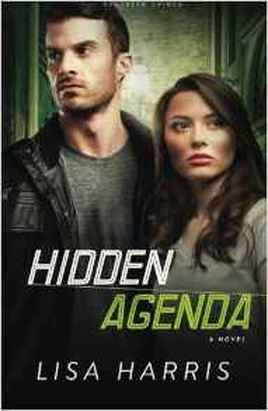 Interview by Ashley Eastman Featuring Hidden Agenda Ashley: If you’re a fan of romance, but need that twist of suspense to keep the pages turning, then Hidden Agenda is the right read this spring. Lisa Harris continues her exciting Southern Crime Series with the third installment Hidden Agenda. I had some time to sit down and ask Lisa some questions about her new book and about her as an author. Lisa, how did you come up with the idea for this series? Lisa: Like with most of my books, they start with a character. In this series, that was Avery North. At first, all I knew is that she was she was a single mom and a police officer, but I knew I had to tell her story. A brainstorming session with a group of authors helped me further develop the series that eventually came to revolve around the Hunts, a family from Atlanta who has served their country through the armed service or police department for generations. Despite conflicts that arise between them, they are very close knit, and when it comes to fighting injustice, they stick together and do whatever it takes to stop that injustice. Ashley: Who are Hidden Agenda’s main characters? Lisa: I really had fun writing Michael and Olivia’s story in Hidden Agenda, primarily because their stories were different from anything I’ve written. They are two people who come from opposite worlds who end up having to work together to stay alive. Michael’s the son of a former Police Captain and an undercover detective. Olivia’s father is part of a South American drug cartel and wants Michael dead. But despite their mistakes, they both are after the same thing. The truth. Ashley: I promise these two characters’ stories deliver on the promises of romance and suspense. Lisa, in three sentences what is this book about? Lisa: For the past eight months, Michael’s family has thought he was dead, but the undercover assignment he’s been working on has just been blown. With a contracted hit on his life by the cartel and not knowing who he can trust in the police department, Michael finds himself on the run from both the cartel and the law with the daughter of the man who wants him dead, Olivia Hamilton. Ashley: Lisa, what are the Biblical threads woven into the series? Lisa: Overall, I’d say it’s a call for us to realize our own weaknesses and fears and to in turn learn to rely only on God’s strength. Each main character in this series is pulled out of his or her comfort zone to a place where they have to turn to God. Ashley: How many books are planned for this series? Lisa: Hidden Agenda is the last book in the three books series. Dangerous Passage and Fatal Exchange come first. Ashley: Do you prefer to outline the entire series, or do you write as you go letting the characters take control of the story? Lisa: A little of both, but for the most part I spent a lot of time staring at a pile of sticky notes in order to bring the story together. ☺ The plots of each individual story, and then the three books together as well, are woven pretty tightly, so that forced me to stay organized. But there were also a few surprises along the way as some of the characters took over! Ashley: Any certain research required for the book, or is it all straight from your imagination? Lisa: I spent hours doing research on everything from the setting (Atlanta and the Georgia coastline), to drug trafficking, to bomb squads. I love the research part of writing and too often find myself having to stop or I’d never get any books written! Ashley: As a reader I appreciate a well researched book. Can you give us a hint at your next project? Lisa: I just turned in book one of a brand news series to my editor at Revell. It’s about a newly established missing person task force, and this first one is set around the Smoky Mountains. Like the last series, this one took tons of research—everything from rappelling, to poaching, to mobile command posts—but I really enjoyed that part of the writing. Ashley: What is your favorite genre to write for? Lisa: I love romantic suspense, heavy on the suspense. Ashley: Where do you like to write? Lisa: Where ever I can find a quiet place. I don’t have an office right now, but the couch, or dining room table, or desk work fine. Ashley: Sounds like you invest a lot of time in writing. Are you a full time writer? Lisa: No. For the first time in seven years, though my role as ‘mom’ has changed. I’ve been a homeschooling mom until just a few months ago when the last of my kids went off to attend a missionary boarding school. It’s been an adjustment, but thankful, I have plenty to keep myself busy with as I’m still writing, am involved in our women’s ministry, and run a non-profit called The ECHO Project that helps meet people’s physical needs where we live here in Mozambique. Ashley: How long does it usually take you to write a single book in the series? Lisa: I like to have at least six months for a full-length novel. That gives time for research, plotting, and writing. Ashley: Do you plot or outline the entire series before you begin writing, or do your books take on lives of their own? Or is there a combination? Lisa: Definitely a combination. I have in the back of my mind an arch of the character and story line and start from there to fill in the details. Ashley: What is your inspiration for writing this series? Lisa: I wanted a series that went beyond just a fast-paced romantic suspense, but also delved deep into the character’s lives and how their experiences affected them. Each story also deals with a real life issue like human trafficking and the drug cartel. Ashley: Coke or Pepsi? Lisa: Neither. (Unless I’m on a tight deadline and need a caffeine jolt) Ashley: Soft shell or hard shell tacos? Lisa: Hard, because I love them can’t get them where we live. Ashley: Favorite place to vacation? Lisa: I love the sun and the beach, because we live near the Indian Ocean. But with summer on the way, I’ve been dreaming of a cozy cabin somewhere in the mountains with a fireplace and a good book. Ashley: Favorite season? Lisa: Spring and fall (Not too hot or cold!) Ashley: Do you have a particular drink or food you consume when you write? Like coco, raspberry tea, animal crackers? Lisa: Popcorn Ashley: Favorite color? Lisa: Purple Ashley: What’s your favorite holiday memory? Lisa: Making homemade ornaments one Christmas because our car broke down and we couldn’t make it home. It reminded me that being together is what really matters! Ashley: Do you have a favorite Bible verse? Lisa: II Corinthians 4:16-18. I love the reminder what we see here is temporary and we need to fix our eyes on what is unseen, the eternal! Ashley: Favorite pasta dish? Lisa: Anything with homemade pasta. I bought a pasta maker recently and wow, there is such a difference! Ashley: Do you listen to music while you write? If so, what are some examples? Lisa: Anything without words. Right now on my playlist is the Lord of the Rings soundtrack and Lindsey Stirling. Ashley: Thanks for sharing about Hidden Agenda all the way from Mozambique and thanks for serving for the Kingdom there. 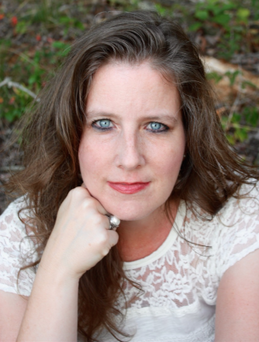 Author Website: LisaHarriswrites.com Author Facebook: facebook.com/AuthorLisaHarris Author Twitter: @heartofafrica Author Pinterest: pinterest.com/lharriswrites/
0 Comments
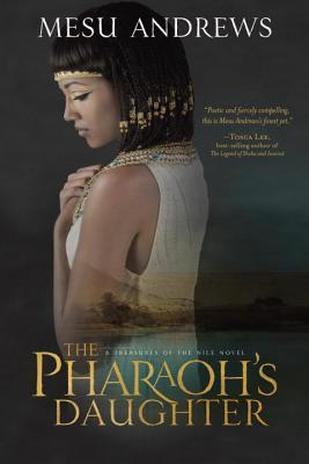 Interview by Brock Eastman Featuring The Pharaoh's Daughter Long before Moses would lead the Israelites out of Egyptian slavery, he was a three-month-old baby, placed in a basket and set adrift on the dangerous Nile River. That precarious journey led a Hebrew slave child into the arms of the Pharaoh’s daughter. Who was the woman who drew this child out of the water? What transpired in her life and what influence would she have over the man Moses would become? In The Pharaoh’s Daughter, award-winning author, Mesu Andrews answers these questions as she weaves an intricate tapestry of Egyptian history, biblical fact and her own artful imagination to describe fundamental truths that transcend time and culture. Experience a familiar Old Testament story, for the first time, through the eyes of the Egyptian mother who loved Moses as her own. Andrews begins this epic with a single, haunting image; a girl, terrified and trembling hides alone in a dark closet. Her name is Anippe. She is the daughter of a Pharaoh and the sister of the boy King. Yet with each new identity, she continues to hide among shadows of fear and doubt, while never understanding her true worth. Devastated by the death of her mother during childbirth, Anippe is terrified to conceive a child and an heir for husband Sebak. Yet she still yearns for motherhood. When she discovers a Hebrew child stowed in a basket on the river, she believes her prayers are answered. Her story has only begun. Her life of royalty is suddenly bound with the fate of the Hebrew slaves, as she struggles to conceal Moses’ true heritage. In The Pharaoh’s Daughter, Andrews invites readers to step back into time and experience a world ripped from the pages of the Bible. With an absolute reverence for scripture and a meticulous examination of historical records, Andrews illuminates the truth of God’s Word in this complex and mesmerizing tale. Discover how God calls out to those who hide in the shadows. Watch as He draws them out of watery depths and into His eternal family. Examine how He changes their names and with it, their hearts. Stand in awe of a hope that can never be lost or stolen. In this beautifully conceived story, Andrews beckons readers to come out of hiding and meet face-to-face with a name-changing, covenant-keeping God. Mesu Andrews’ deep understanding of and love for God's Word brings the biblical world alive for her readers. Her first novel, Love Amid the Ashes won the 2012 ECPA Book of the Year for a Debut Author. Her three subsequent novels, Love's Sacred Song, Love in a Broken Vessel, and In the Shadow of Jezebel all released to great reader enthusiasm. Mesu has been married to her husband Roy for 30 years and they live in the beautiful Pacific Northwest. They have two adult daughters. Brock: Mesu Andrews is carving out a niche for herself with Biblical fiction. The Pharaoh’s Daughter is the first novel in her Treasures of the Nile series and her fifth book to date. Mesu answered our questions about her inspiration, her intriguing characters and her passion for Biblical fiction. What was your inspiration for writing this book? Mesu: Of all the great Old Testament characters, Moses stands alone as the friend of God (Ex. 33:11). That intrigues me. What further intrigued me were the women in Moses’s life—four specifically mentioned. The ancient world was a man’s world, so when women are recorded in written text, I get curious. I suppose it wouldn’t be unusual to mention his mother, but he gave detail about Jochebed’s motivations and thought processes. He elaborated on his sister Miriam’s courage to approach Pharaoh’s daughter in the bulrushes and boldly revealed his Egptian mother’s defiance of Pharaoh’s edict. Later, Moses mentioned his wife, Zipporah, and described her heated reaction when Moses neglected to circumcise his sons. The transparency with which Moses describes these women and the underlying respect—by their mere inclusion in the text—made me want to dig deeper into their history and tell their stories. Brock: Tell us about the main characters. Who are they? What makes them unique? Mesu: We first glimpse Anippe hiding alone in a dark closet, traumatized and trembling after witnessing the death of her mother during childbirth. She’s the daughter of a Pharaoh and sister of a boy who would soon become king. Anippe is plagued by debilitating fear throughout her life, and it builds layer upon layer as she grows into each new role of her life. Terrified to conceive a child and heir for her husband Sebak, she believes the gods answered her prayers when she discovers a Hebrew child stowed in a basket on the river. Her life of royalty is suddenly bound with the fate of the Hebrew slaves, as she struggles to conceal her child’s true heritage. The fertile Nile Delta is home to Egypt’s fiercest military family—the Ramessids. Centuries ago, the Ramessids assisted Pharaoh in ousting the Hyksos—a Canaanite band of tribes—and were rewarded with lush, green estates. They forced the remaining Canaanites, called Abiru (Hebrews), to forced labor on building projects and in the fields. Much of the harvest produced flax for Egypt’s most lucrative export—linen. Mered is the Chief Linen Keeper on the Avaris Estate, where he grew up as slave and companion to the young Master Sebak when Sebak’s parents died in a sweeping plague. The whole estate rejoices when the young master marries King Tut’s sister, but Mered has misgivings about his new mistress, recognizing her little deceptions as warnings of heartache for his master and a dark future for the Hebrews. Brock: Give us one fact about each main character that no one else knows. Mesu: Anippe, though young and impulsive, has a unique talent for designing the exquisite linen robes produced by the Avaris estate. She sketches beautiful designs that the weavers expertly craft into their linen creations. Mered was a Hebrew male slave that smelled like ben tree oil—an Egyptian cosmetic oil to soften dry skin. It was one of his many dichotomies—his need to appear Egyptian for the sake of trading Avaris’s linen and yet remain thoroughly Hebrew in faith and commitment to Yahweh. Brock: In a few sentences what is this book about? Mesu: Experience the story of Moses through the eyes of The Pharaoh’s Daughter who found him. Meet the brave midwives who protected the sons of the Hebrews, the talented young Miriam whose singing soothes the heart of Pharaoh’s grandson, and the young prince who must choose which god he will follow. Brock: How do you believe this story relates to the lives of readers? Mesu: Each of my books has had an overarching theme. Job’s story (Love Amid the Ashes) spoke to those who suffer. Gomer and Hosea’s story (Love in a Broken Vessel) challenged readers to God-sized forgiveness and the promise of God’s grace. The Pharaoh’s Daughter tackles that nagging—sometimes debilitating—emotion of fear. On September 11, 2001, our entire nation experienced fear, but fear was daily reality for the Hebrews in ancient Egypt. Personally, I have grown up afraid—why? I have no idea. I remember being afraid of the dark. Afraid a fire would burn down our house. Afraid of dogs. Afraid of… you name it. As I’m writing this, I’m afraid I’ll run out of coffee creamer. We’re all afraid of something. When The Pharaoh’s Daughter pulled a Hebrew baby from the Nile, I believe she was motivated by fear. This book explores the choices that grew out of her fear and leads the reader through the consequences and victories, the joys and sorrows of those choices—and the faith that frees her from fear’s prison. Brock: What is your favorite genre to write? Mesu: My ONLY genre is biblical fiction. My first love is the study of God’s Word. Biblical novels give me an excuse to keep my nose buried in the Bible and research books! What a joy to share with others both the passion and pleasure of my heart. I am most blessed. Brock: What is the biblical background or basis for the series? Mesu: Exodus 1:1-2:10. The Pharaoh’s Daughter gives a brief background of how Jacob’s family came to dwell in Egypt, but most of the book focuses on Exodus 1:15-2:10, the story of Pharaoh’s edict that the Hebrew midwives kill all Hebrew male babies and Moses’s rescue from the Nile by Pharaoh’s daughter. Brock: How many books are planned for this series? Mesu: Two book are planned for Treasures of the Nile series: The Pharaoh’s Daughter and a book on Miriam, Moses’s sister (as yet untitled). Brock: Any certain research required for the book, or is it all from your imagination? Mesu: LOTS of research, and I LOVE it!!! I must confess, I hated history in high school and college, but I can’t get enough of the historical and biblical research for my novels. It’s actually hard to start writing the book because I enjoy the research so much. I always include an Author’s Note at the end of each book to share how the research helped form the story. Many folks have commented it’s one of their favorite parts of my books because it helps define what’s fact and what’s fiction. Of course, my foremost goal is to send readers back to Scripture to read the Truth. Biblical novels are fiction, after all, and are only intended to stir curiosity for more of God and His Word. Brock: How do you strike the right balance in your book? Mesu: My process is always the same: biblical Truth is foundational, historical fact provides the next layer, and creative fiction fills in the holes. When forming characters (especially the biblical characters), I try to take into account the full counsel of Scripture. Solomon was especially difficult (in Love’s Sacred Song) because he was supposed to be the wisest man who ever lived, but he sure made some stupid life decisions, right? When forming characters and circumstances in The Pharaoh’s Daughter, I had to be especially cautious because there’s so much conflicting historical data regarding Egypt, its kings, its gods, etc. I finally had to choose a few vetted resources and use them exclusively for my historical facts. My editor is a huge help in this area, offering her years of experience as a guide for how Christian readers might receive my interpretations of characters and events. I’m so thankful for the talented team of folks who work alongside to publish my books. Brock: How does it feel to have your work published? Mesu: I’m on book #5, and it’s still surreal to walk into a store and see my name on a book on the shelf. Brock: Why did you choose to focus on a female protagonist? Mesu: Because my editor told me to. ;) Seriously, I struggle to write in a male POV because I struggle to think like a man. My sweet hubby reads all my manuscripts and helps with this area, making sure I don’t have men giggling or doing other ridiculously female things. Brock: Are you working on the next book in the series? Mesu: Yep! The rough draft of Miriam (working title) is currently with my beta readers and will (hopefully) be in my editor’s hands by March 1st. Brock: Can you give us a hint at the next book in the series? Mesu: For all her eighty-six years, Miriam has found complete contentment in her relationship with El Shaddai, but when her brother Moses returns from exile proclaiming God’s new name—Yahweh—troubling doubts plague her. Yahweh no longer speaks in her dreams and the underpinnings of daily routine are shattered by revelations of His power. Her quiet home becomes Moses’s center for Yahweh’s activity, and Miriam begins to yearn for more of God, more of life, more of love. How could it be that Yahweh would ask a faithful, influential woman to stretch beyond her belief—and bless her with uninvited yearning? Brock: Do you plot or outline the entire series before you begin writing, or do your books take on lives of their own? Or is there a combination? Mesu: I’ve now written six novels (including the rough draft, Miriam), and each process has been completely different. The first book was by the seat of my pants—the characters told the story as I typed. With each book, I’ve done more plotting and outlining, but the characters still change the outline as I type, usually necessitating a new outline halfway through the rough draft process. Brock: If your book changed as you wrote it, how is it different than how you originally planned? Mesu: Several of the plot twists come to me as I write. I wouldn’t dare share them here and ruin the surprise. ;) Brock: Were any scenes or characters cut from the book? Can you give an example? Mesu: Actually, about 20% of the book was cut. Yep, it was pretty painful—but necessary. In its final form, The Pharaoh’s Daughter stops when Moses (Mehy—his Egyptian name) is eighteen years old. Originally, the story continued through Exodus 2:11-15, when Moses was forty and defended the Hebrew slave by killing the Egyptian slave master. My editor said telling that part of the story was more about Moses than The Pharaoh’s Daughter. Though I hated to lose all that work, she was absolutely right, so we cut it. It’s a far better story. Brock: How much leeway do you gives yourself with facts in a Historical Genre? Mesu: None. If there’s a discrepancy between my story and Scripture, it’s an oversight, and I apologize. God’s Word is Truth, and it stands as the unalterable foundation of every story. If historical research ever contradicts, I pray it through and often find a reasonable explanation for the seeming contradiction. For instance, when figuring Moses’s age, he would have been born in 1330 BCE. The Pharaoh during that time was King Tut—who was too young when he died to have a daughter. How could I write a story about Pharaoh’s daughter when historical fact made it impossible? Historical data showed that King Tut had sisters—who would have been daughters of Pharaoh Akhenaten. King Tut’s sister is The Pharaoh’s daughter in my story, and I didn’t have to skew history to write God’s Truth. My books aren’t textbooks. They’re fiction. However, I keep the biblical Truth and historical facts as precise as possible. Brock: How do you hope parents will use this book with their kids? Mesu: I’ve had teachers contact me for the free bookmarks on my website because they were using my books in their Lit. classes and wanted to pass out the bookmarks to their kids. Some parents may not feel the subject matter is appropriate for teens under sixteen (Love in a Broken Vessel is about the prophet Hosea marrying the prostitute Gomer). It’s up to the parents to make that call, but The Pharaoh’s Daughter tells about a fourteen-year-old princess who is forced to make some pretty terrifying choices. Our kids are forced to grow up pretty fast these days. Fear is something they’ll face all their lives. I hope this is a story that can help parents and their kids openly discuss how to deal with their fears in a way that honors God. Brock: What do you hope kids take away from The Pharaoh's daughter? Mesu: "Fear is the most fertile ground for faith." Anippe’s fears cause her to deceive and push away those closest to her. All kids lie. Many times it’s because they’re afraid of the consequences that will follow a truthful answer. I pray that Anippe’s story will give kids the courage to trust the Lord—and the love of those around them—enough to live a life of faith. Brock: Where do you like to write? Mesu: In my recliner by the fireplace with a cup of coffee in hand. Brock: Are you a full-time or part-time author/writer? Mesu: I’m a full-time writer. (It still feels funny to call myself an author. It’s too much fun to be a real job.) Brock: How long does it usually take you to write a single book? Mesu: My first book took twelve years. Now, it takes me a year from the time I begin researching the topic to the time my rough draft is complete—and usually another year before the book releases. Brock: What do you hope readers take away from the series? Mesu: I think in both stories of Treasures of the Nile, God is enigmatic to the Hebrew people. He’s been nearly silent for four hundred years, speaking only occasionally through a girl (Miriam) who matures into a faithful prophetess. When Moses returns from exile, proclaiming Yahweh’s new name and His promise of deliverance, the true “Treasures of the Nile” become God’s character and power revealed to His people. Brock: Expound on the spiritual themes in The Pharaoh's Daughter. Mesu: Much of Anippe’s fear stems from a life devoid of real love. 1 John tells us perfect love drives out fear, and this is an important lesson for The Pharaoh’s Daughter. We see the antithesis in Mered, whose love and faith give him a steadfast quality throughout the ups and downs of a Hebrew slave’s existence. Themes of worth, wealth, and true value are also explored, while young Moses (Mehy) must decide which of the many “voices” he’ll listen too—the loudest or the ones proven by peace. Brock: What is your "how I got published" story? Mesu: I was a pastor’s wife from Indiana who spoke at a few women’s conferences a year, and I wanted to publish one Bible study—on Song of Solomon. When I attended my first writer’s conference with this singular goal, I was told by an editor, “I wouldn’t publish a Bible study on Song of Solomon if Billy Graham wrote it, let alone a first-time author without a platform.” That was the kindest feedback I received at that conference. A good friend of mine suggested I write the study as a biblical novel, teaching through a parable—as Jesus taught. She suggested it again, and again, and again. Finally, in 2008 I listened and attended the Mount Hermon fiction mentoring clinic taught by Gayle Roper. I didn’t even know what POV was, but the Revell editor was looking for biblical fiction at that conference and was willing to take a chance on a VERY unproven author. The rest, as they say, is history. No one will ever convince me that getting published is anything but God’s direct intervention. The odds of me getting published—especially in fiction—were astronomical. But my God is out of this world. Brock: When did you realize you wanted to become a writer? Mesu: I’ve never wanted to become a writer. I was compelled to write, and it became my joy. I used to be an off-the-charts extrovert, teaching God’s Word in Bible studies, adult small groups, and women’s conferences. In 2002, my health took a downward turn, and I spent six months in bed. I still needed to share the Word of God somehow, so my laptop became my best friend and the avenue God provided for sharing what He taught me. Sometimes His greatest gifts are those we don’t realize we want. Brock: What are some of the strongest influences on your writing? Mesu: When I started reading biblical novels, there weren’t many to choose from in the Christian market, so I found what I could in the general market. Though the Red Tent isn’t a Christian novel, it is superbly researched and written and made me long for true-to-Scripture biblical novels. I soon found Lynn Austin’s Chronicles of the Kings series and Francine Rivers’ Mark of the Lion series, which are still some of my favorites. Brock: What are your hopes for your future as an author? Mesu: I want to maintain my passion for God’s Word for as long as I write. If my passion for the Word gets lost in the publishing mire or daily stresses of marketing/social media, I’m done. I write to glorify the Word, Who became flesh. If I ever lose that focus, I have nothing worth saying. Brock: In what ways does your faith impact how you approach writing? Mesu: I must personally embrace the lessons my characters experience. If my characters are doing or saying things that the Lord hasn’t made real in my own life and heart, they come off as preachy and fake. Their journey is my journey—not in specific detail, of course. I’m not a shepherdess or prostitute or princess, but I learn the lessons of love, forgiveness, and faith as surely as each of my protagonists learned them. Brock: Coke or Pepsi? Mesu: Diet Pepsi (once in a great while) Brock: Favorite place to vacation? Mesu: Anywhere my kids/grandkids are! Or in our friends’ mountain cabin. Brock: Favorite season? Mesu: Pacific Northwest summer—July-September. Perfection on earth. Brock: Do you have a particular drink or food you consume when you write? Like coco, raspberry tea, animal crackers? Mesu: Coffee w/ hazelnut creamer in the morning. Roasted soy nuts for an afternoon snack Brock: Do you have a favorite Bible verse? Mesu: Zephaniah 3:17 “The Lord your God is with you, the Mighty Warrior who saves. He will take great delight in you; in his love he will no longer rebuke you, but will rejoice over you with singing.” Brock: Favorite pasta dish? Mesu: Any pasta with alfredo and marinara sauces mixed. Brock: Do you listen to music while you write? If so, what are some examples? Mesu: Not anymore. Menopause has become mental-pause, and now I do one thing at a time. Brock: If I could go anywhere in the world, where would it be? Mesu: I’d go back to Israel. Hubby and I went with a tour group in 2000, but I’d love to go back with a private guide on a research tour of my own. Brock: What do I read for pleasure? Mesu: Biblical novels. I love to see which biblical characters other authors choose to write about. It’s fun to stay current on new releases to share with my readers and exchange opinions about their favorites and mine. 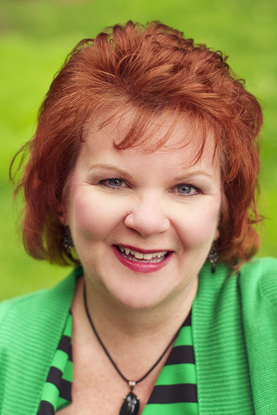 Author Website: MesuAndrews.com/ Author Twitter: twitter.com/MesuAndrews Author Facebook: www.facebook.com/MesuAndrews Author Pinterest: www.pinterest.com/mesuandrews/ 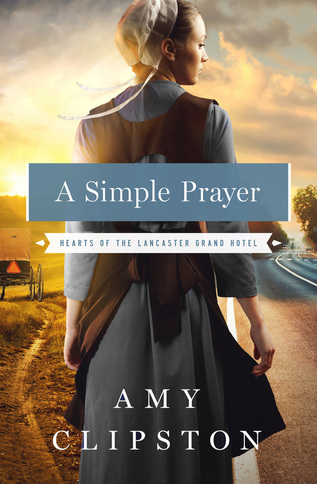 Interview by Ashley Eastman Featuring Amy Clipston Linda is no stronger to hardship. Now she dares to hope for a chance at love and a new beginning. As the sole survivor of a buggy accident that left her orphaned at age four, Linda Zook was raised by her unwilling Uncle Reuben. She longs to be worthy of someone, but the life-long effects of her injuries and her upbringing under the care of her embittered uncle have destroyed her self-worth. Aaron Ebersol left the Amish community seventeen years ago when he could no longer bear the restrictions or the constant tension with his father. Despite all of his unanswered letters to his parents, and the roots he’s put down in Missouri, Aaron hastily returns to the Amish community of Paradise, Pennsylvania, after receiving word of his mother’s stroke. Hesitant to get too close to the family he was once a part of, he decides to stay at the Heart of Paradise Bed & Breakfast. He soon encounters Linda, working there part-time, and the two find they have a lot in common. Can Linda and Aaron forgive the family members who have deceived and forsaken them? And will Aaron be able to convince Linda that she is worthy of his love? Amy Clipston consistently delivers an exciting look into the lives of the Amish. Her experience as an author and knowledge of the Amish world creates exciting characters and rich stories that take her readers along on an engaging story. Ashley: Amy, thanks for joining us. First, I wanted to ask how you came up with the idea for The Hearts of the Lancaster Grand Hotel series? Amy: The Hearts of the Lancaster Grand Hotel series features women who work at the fictional Lancaster Grand Hotel. The series was inspired by the Berlin Grand Hotel in Berlin, Ohio, which I visited in 2011 while I was on a book tour with two other Amish fiction authors, Shelley Shepard Gray and Vannetta Chapman. When we visited the hotel, Alicia Mey, the marketing representative from Zondervan, suggested I write a series about Amish women who work in a high-end hotel and show the juxtaposition of the Plain life with the fancy English (non-Amish) life. Ashley: I can imagine how being immersed in a place like the Berlin Grand Hotel can really get your imagination turning. Who are the main characters in A Simple Prayer and what makes them unique? Amy: As the sole survivor of a buggy accident that left her orphaned at age four, Linda Zook was reluctantly raised by her Uncle Reuben. She longs to be worthy of someone, but the lasting trauma of her injuries and embittered upbringing by her uncle have destroyed her self-worth. Aaron Ebersol left the Amish community seventeen years ago when he could no longer bear the restrictions or the constant tension with his father. Despite years of unanswered letters to his parents, and the roots he’s put down in Missouri, Aaron rushes back to the Amish community of Paradise, Pennsylvania, after receiving word of his mother’s stroke. Hesitant to get too close to the family he was once a part of, he decides to stay at the Heart of Paradise Bed & Breakfast. He soon encounters Linda, working there part-time, and the two find they have a lot in common. Ashley: These are characters I certainly can’t wait to learn more about. Can you share one unknown fact about Linda and Aaron with our readers? Amy: I always have mental models for my characters and I imagine them when I write the book. My mental model for Linda was movie star Natalie Portman, and my model for Aaron was Olympic ice skater Charlie White. Ashley: Give readers the one sentence version of A Simple Prayer? Amy: Two emotionally broken people looking for love and acceptance. Ashley: How does A Simple Prayer relate to the lives of your readers? Amy: I believe that we’ve all suffered from some sort of rejection in our lives, whether it’s from a family member or a friend. Everyone has been hurt and knows what it’s like to feel alone. Ashley: When you write do you outline or follow the story as it develops? Amy: Oh, I definitely outline! I outline each chapter scene by scene and use my outline as a roadmap while I’m writing. The book changes and grows, but the outline keeps me on track. Ashley: Is this your favorite genre to write for? Amy: I love writing Amish books. I have an Amish friend who helps me with my research, and I enjoy sharing ideas with her and getting her feedback. I love finding new ways to tell an Amish story, and I respect the culture. I learn more about the culture when I write a new book. Ashley: Is there a biblical background for A Simple Prayer? Amy: A Simple Prayer is loosely based on the parable of the Prodigal Son. Ashley: How many books are planned for The Hearts of the Lancaster Grand Hotel series? Amy: A Simple Prayer is the last book in my 4-book Hearts of the Lancaster Grand Hotel series. Ashley: How do you research the Amish world to make such accurate portrayals of the Amish world? Amy: I have an Amish friend who has been helping me with my books since my first book, A Gift of Grace, debuted in 2009. I talk to her on the phone frequently, and she answers my questions. I’m so thankful that she takes the time from her busy day to help me with my books. Ashley: How do you strike the right balance in your book? Amy: I outline the story, but it sort of flows on its own. I write what feels right to me and let my editor do her magic to make it better. Ashley: What do your readers think about your latest series? Amy: I think readers will enjoy A Simple Prayer because it’s the last book in the series and the mysteries about a couple of the characters will be revealed. All of their questions will be answered with this book. Ashley: Why did you choose to focus on male and female protagonists? Amy: I enjoy writing from both the female and male point of view, and I’ve been told that I do a good job with the male POV. I enjoy watching people and listening to how they speak and react to things, and I try to bring that out in my writing. Ashley: Are you working on your next series? Amy: Currently, I’m working on a new series, which features a new Amish family and will be based in Bird-in-Hand, PA. The first book will debut in November 2015. Ashley: Do you plot or outline the entire series before you begin writing, or do your books take on lives of their own? Or is there a combination? Amy: I loosely plotted the books in my Hearts of the Lancaster Grand Hotel series. My editor and I decided who would be the main protagonists in each book, but we didn’t have their stories ironed out when I start writing A Hopeful Heart. My new series, however, is plotted out, and I know what the story will be for each book. The stories may grow and change when I write them, but I have a premise for each book. Ashley: How is A Simple Prayer different than how you originally planned? Amy: The idea of Aaron coming back in book #4 wasn’t in the original plan for the story. I knew that the book would be Linda’s story, but my editor and I hadn’t worked out the idea of having Aaron come back until we were finishing up book on book #2, A Mother’s Secret. Ashley: How much leeway do you give yourself with facts about the Amish? Amy: I am always true to the Amish culture, but I do take some fictional license with my characters. For example, Carolyn Glick in A Mother’s Secret was an unwed teenage mother. This may be a rare occurrence in the Amish community, but according to my Amish friend, it does happen. The Amish have the same problems and issues that the rest of us have. Ashley: Where do you like to write? Amy: I have a laptop, so I usually write in the family room in my house or in the recliner in my bedroom. Ashley: Are you a full-time or part-time author/writer? Amy: I work full-time for the City of Charlotte, and since I write four books per year, I also write full-time. I work four 10-hour days for the City in order to have Fridays off for writing, running errands, and volunteering at my boys’ school. I’m also blessed to have my mother living with my family. She handles most of the housework, including food shopping, cleaning, and doing laundry. Thanks to her help, I’m able to spend any free time at home writing. My schedule is not an ideal schedule, but I make it work. My family is very supportive and thankful for my book contracts. Ashley: How long does it usually take you to write a single book? Amy: After the book is plotted out and outlined, it takes me approximately four weeks to write the first draft. Ashley: What do you hope readers take away from the series? Amy: The theme for my books is always hope and faith. I pray that my books will give my readers a sense of peace and help them find hope and renewed faith in God. Ashley: What is your "how I got published" story? Amy: I always wrote as a hobby when I was a child. I started carrying around notebooks in elementary and only shared my stories with a few friends. I accidentally found a local writers’ group after college. I joined the writers’ group in 2001 and signed with my first agent in 2005. I received my contract for my first Kauffman Amish Bakery book, A Gift of Grace, in December 2007, and that book actually hit stores in April 2009. Ashley: When did you realize you wanted to become a writer? Amy: Although I wrote for a hobby, I didn’t realize I wanted to become an author until I found the writers’ group in 2001. It never occurred to me that my stories could possibly become actual books until I met other writers and learned how to polish my books. Ashley: What was your favorite book as a teen or child? Amy: My favorite book was The Outsiders by S.E. Hinton. I read it fourteen times (yes, I kept track on the inside cover!) and I knew the movie by heart. Ashley: What is the one author, living or dead, who you would co-write a book with and why? Amy: I would love to co-write a young adult book with S.E. Hinton. Her books were a pivotal part of my adolescence. I would be honored to work with her. Ashley: What was it like when you opened the box and saw published copies of your very first book? Amy: I danced and yelled! I ran my hands over the cover and then smelled and hugged the book. It was my dream come true. There was no feeling like it! In fact, I still hug and smell my books when a new book arrives. It doesn’t get old. I’m so thankful that my publisher still gives me the opportunity to share my stories. Ashley: What are your hopes for your future as an author? Amy: I hope that I can continue to write books that touch readers’ hearts. I’m thankful when a reader contacts me and tells me that my story touched them. I’m thankful that God is using me to share his love. Ashley: In what ways does your faith impact how you approach writing? Amy: I believe my faith comes through in my writing. I’m grateful when a reader contacts me to say that my book helped him/her renew his/her faith in God. I believe that God is using my voice to share his word, and I’m thankful that I have the opportunity to do that. The books have been a blessing in my life, especially with the readers and other authors I’ve met through my writing. Ashley: I know that organ and blood donation is something you are passionate about, Amy. Please share a little about this. Amy: Some readers may not know that my husband, Joe, has endured two kidney transplants. Joe received a kidney from his brother in 2004, and it only lasted four years. In 2008, he went back on dialysis, and he was very ill. I was willing to donate to Joe, but I wasn’t a perfect match. Instead of donating a kidney to Joe, I found another way to help him. I donated a kidney on June 14, 2011, at Johns Hopkins Hospital. Through my donation, my husband, Joe, received a second kidney transplant. My husband and I matched another couple and swapped kidneys with them. I donated a kidney to a woman, and in exchange, her husband gave a kidney to Joe. My memoir, A Gift of Love, details our journey with Joe’s kidney disease and his two kidney transplants. You can find my memoir here. Due to Joe’s kidney struggles, I’ve become an advocate for both organ and blood donation. I volunteer with the National Kidney Foundation, and I also run blood drives at my church. If you are healthy and able, please give the gift of life and donate blood. Ashley: You've posted some delicious looking Amish recipes on your website. Do you incorporate these into your novels and do you have a favorite? Amy: My first Amish series, the Kauffman Amish Bakery series, featured several recipes in each of the five books. Crumbly Peach Pie was the favorite of Timothy Kauffman, who was featured in my book A Place of Peace. Timothy is one of my favorite characters, so I thought I’d include that recipe here: Crumbly Peach Pie 9-inch pie shell, unbaked 1 cup sugar ¼ cup flour 1 tsp cinnamon 1/8 tsp nutmeg 1 stick butter 8 large peach halves ¼ cup water Mix together the sugar, flour, cinnamon, and nutmeg, then mix in butter until crumbly. Sprinkle half of the mixture in the bottom of the pie shell. Arrange peach halves cut side down over crumbs. Cover with remaining crumbs. Add the water after and bake for 10 minutes at 450 degrees, then for 30 minutes at 350 degrees. 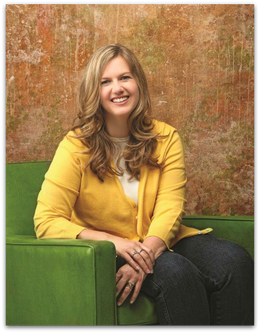 Author Website: AmyClipston.com Author Facebook: facebook.com/AmyClipstonBooks Author Twitter: @AmyClipston Author Pinterest: pinterest.com/amyclipston 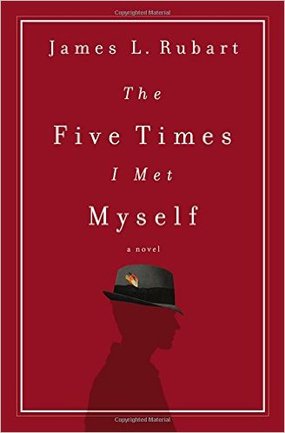 Interview by Brock Eastman Featuring The Five Times I Met Myself What if you met your twenty-three year old self in a dream? What would you say? Brock Matthews’ once promising life is unraveling. His coffee company. His marriage. So when he discovers his vivid dreams—where he encounters his younger self—might let him change his past mistakes, he jumps at the chance. The results are astonishing, but also disturbing. Because getting what Brock wants most in the world will force him to give up the one thing he doesn’t know how to let go of . . . and his greatest fear is it’s already too late. "If you think fiction can't change your life and challenge you to be a better person, you need to read The Five Times I Met Myself." -Andy Andrews, New York Times bestselling author of How Do You Kill 11 Million People, The Noticer & The Traveler's Gift Brock: How did you come up with the idea for this book? James: Ideas never come to me the same way twice and this story was no exception. The muse this time was my wife, Darci. She and I were talking one evening when she said, “God knows what we’re going to grow into ten years from now. Wouldn’t it be fascinating if we could talk to that person we’re going to become?” I agreed and started writing a book where my protagonist’s future self came back and talked to him about he would become. But in the end we found it was much more fascinating (and powerful) if a present day man went back and began a relationship with his younger self. Because don’t all of us wish we’d known back then what we know now? And wish we’d done some things differently? And wonder how our lives would have turned out if we had? Brock: Tell us about the main characters. Who are they? What makes them unique? James: You’ll love the main character, Brock! (And not just because his name is Brock.) We get to know two versions of Brock Matthews, one that is 52 in present day, and one that is 23, who the older Brock meets in his dreams. Then there’s his wife, Karissa (again, we get to know both the older and younger versions) who is slipping from Brock’s grasp in the present day and he doesn’t know how to get her back. Plus Brock’s brother, Ron who Brock competes with in every area of their lives. Toss in an enigmatic doctor of psychology who seems to know more about what’s going on with Brock than he’ll say, and Brock’s best friend Morgan (who starts him on his fascinating journey back to his younger self) and I think we have a fairly interesting cast of characters. Brock: Give us one fact about each main character that no one else knows. James: Brock’s desire when he was a kid was to play college basketball, but it died when he was young and he’s never told anyone why. Karissa's dream was to be a dancer, but no one knows this. Ron longed to be a professional golfer. Brock: In three words what is this book about? James: Hope. Restoration. Freedom. Brock: Do you outline the entire book before starting, or do you write as you go and let the characters take control of the story? James: Most of the time I have nothing more than an overarching idea and just dive into writing the story however it comes to me. In this case, the book was a more complex than usual, so I had to build a fairly complete outline to start writing from. But it was interesting to see the multiple twists and turns the story took as I wrote it. I like that because I figure if I can surprise myself while I’m writing the story, even when I’m supposed to know where it’s going, when my readers get to the book, they’ll be surprised as well. Brock: How do you believe this story relates to the lives of readers? James: I believe there’s a part of all of us that wishes we could go back and tell our younger selves what they should have done different, whether we’re 20 or 40 or 60 or 80 years old. We wonder how our lives would have turned out if we’d made different choices. And we want hope and restoration and freedom in the midst of examining those choices we did or did not make. I wanted to explore those questions and give readers the chance to search through those questions in their own lives. By the end of the novel I want to offer them hope and restoration for the choices they would or wouldn’t have made, if they had the ability to do things over. Brock: Any certain research required for the book, or is it all from your imagination? James: All from my imagination. That’s what makes fiction so much fun to write. I see a movie playing in my head and just write it down as it comes to me. Brock: How long does it usually take you to write a single book? James: Depends on the deadline. If it’s six months, it’ll take six months. If it’s due in eight weeks, then it’s eight weeks. Once I get the idea bubbling through my brain I’m able to write fairly fast. What most people don’t realize is how emotionally and physically exhausting writing can be. It’s like running a marathon. There’s massive satisfaction and triumph in finishing, but at the same time, it takes a lot out of you. So when I’m done, I spend a day or two comatose on the couch, trying not to drool too much. Brock: What do you hope readers take away from the novel? James: Andy Andrews describes the book as being life changing. That’s exactly my hope, that people’s lives would be changed after reading The Five Times I Met Myself. I’ve had people say my books are not fluffy reading. That they stick with people months and years afterwards. I hope that’s true. I want my stories to seep into people’s minds and more importantly their hearts, and encourage them for a long, long time. Brock: Expound on the spiritual themes in the book. James: It’s extremely tempting to try to get our validation from our spouse, our children, our career, our accomplishments, our friends, our accolades ... everything except Jesus. Yet the only validation that lasts is from the Lord. This is at the heart of The Five Times I Met Myself and a truth I’ve learned only recently myself. Brock: What are some of the strongest influences on your writing? James: My wife isn’t a big fiction reader, but she’s brilliant at nuance and relationship. So she shapes my novels to a greater degree than she realizes. I ask her if something rings true or not, and she’s always spot on with her counsel. Extremely grateful for her. Brock: What’s your view on e-books and the new publishing revolution? James: Love e-books, love my Kindle (even though I’d still chose a physical book over an electronic one if I had to choose). I love that it’s now easy for anyone to publish a book in electronic or physical form. Hate the fact that most people think they’re ready to publish a book before they are. I put myself in that camp. I thought I was ready when I wasn’t. Writing is hard. Writing well is even harder. Brock: Describe your feelings when you opened the box and saw the first published copies of your very first book. James: I suppose I’d be able to recall those feelings easier if I hadn’t been dealing all that strange moisture collecting in my eyes. Seriously, Darci and I sat on our front porch together and I struggled to believe it was real. A dream since I was 11 years old, so when it came true in my mid 40s it was a wonderful, surreal moment. Brock: Coke or Pepsi? James: They still sell Pepsi? Brock: Favorite place to vacation? James: Oregon coast. Brock: Favorite season? James: Give me an endless summer. Can’t wait to get to heaven and check that box. Brock: Favorite color? James: Green till I was ten. Blue ever since. Brock: Favorite pasta dish? James: Toss some pesto, a bunch of shrimp, some angel hair pasta, mushrooms, roasted pine nuts all together and I’m feeling very good. Brock: It sounds like you and your wife have a great relationship. Other than her, tell me about two or three of the other most important relationships in your life? James: Without question I have to mention our two sons, Taylor and Micah. I dedicated The Five Times I Met Myself to them by saying, “What dad could be prouder?” So true. I’m crazily blessed, because Taylor and Micah are not only seriously outstanding young men, they are two of my best friends. Brock: I know it’s years away, but any thoughts about what you want on your tombstone? James: Haven’t really considered it, but I’ll take a quick stab: “He loved Jesus, Darci, Taylor, and Micah with his whole heart and when others were around him, they felt more free.” Thanks so much for having me, Brock! 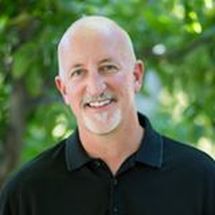 Author Website: JamesLRubart.com Author Facebook: www.facebook.com/JamesLRubart Author Twitter: @jamesLrubart Jackson from Pekin, IL won the 2016 Grand Prize for the Write Early, Write Often, Write Well Contest. He won an iPad Mini! Entering is easy. Check it out. Who can participate? All kids in grades K-6 OR ages 5-13 Writing topic? Entries can be fact, fiction, prose, or poetry. Writing requirements? Parents must verify that participant completed all the steps of the writing process. (Click here for FREE printable) Dictated stories are encouraged and accepted! Writing project word count? Kindergarten and first grade 50- 200 words. Second and third grade 100 -350 words. Third and fourth grade 200 -450 words. Fifth and sixth grader 500-1000 words. All Poetry Submission Requirements: One entry must meet word count for grade level. However, you may submit more than one poem per entry to meet requirement. Illustration requirements? All entries must include an ORIGINAL photo (jpeg) of the cover page that includes the title of the story, artwork (hand drawings by the author), the FIRST NAME ONLY of the author. and age of the author. Students may use Here to Help Learning’s writing project cover templates. NO CLIPART or other COLORING PAGES will be accepted. How many entries can a participant submit? As many as he/she wants as long as all the rules are followed. That’s right! The more submissions, the better your chances are to win! Who wins? The contest begins January 1, 2017 and ends December 31, 2017. At the end of each month a random drawing will be held and a winner will be announced. The winner from the monthly drawing will be eligible for the end of the year drawing. Winner will be announced January 2018. How do I know I won? Winners will be notified via email that is provided with your submission. Winners will be announced in HTHL’s Newsletter and on Brock Eastman’s wesbite. What’s the prize? Monthly winners will receive:
Where do I submit my project? You can submit your project here. What if I have questions about the contest? Direct all questions to [email protected]. Contest sponsored by Here to Help Learning and Crimson Pulse Media 2017 Writing Contest Winners:
January 2017: Sarah H. (Fifth-Sixth Grade) Johnstown, Pennsylvania February 2017: March 2017: April 2017: May 2017: June 2017: July 2017: August 2017: September 2017: October 2017: November 2017: December 2017: 2016 Writing Contest Winners: 2016 GRAND PRIZE iPAD mini winner is….JACKSON from Pekin, Illinois March 2016: Maggie (5-6th grade) Kansas City, Missouri April 2016: Mariana (2-3rd grade) Kansas City, Missouri May 2016: No entries June 2016: Maisy (Kindergarten- First Grade) Kansas City, Missouri July 2016: Lola (Kindergarten- First Grade) San Diego, CA August 2016: September 2016: Kailey (Fifth-Sixth Grade) Gilbert, Arizona October 2016: Lola (Kindergarden-First Grade) San Diego, California November 2016: Jackson (3rd-4th Grade) Pekin, Illinois December 2016: Haley (3rd-4th Grade) Weaverville, North Carolina 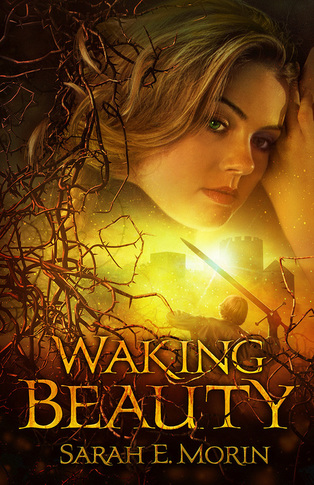 Interview by Brock Eastman Featuring Waking Beauty What if the Sleeping Beauty Refused to Wake Up? The rescue wasn't going at all how he planned. Prince Arpien intends to gain a throne and the sleeping beauty's heart with a single kiss that wakes her from the evil fairy's curse. But kissing the princess is only the beginning of a series of unforeseen obstacles: man-eating bugs, deadly spindles, talking lapdogs, and fiery pickles. The sleeping beauty is the biggest complication of all. Princess Brierly is Beautiful and fairy-Gifted, but also...daft. After one hundred years of sleep imprisonment, Brierly refuses to believe this rescue is anything more than a tantalizing but doomed dream. Arpien is drawn to the vibrancy beneath Brierly's indifferent exterior. Can they reclaim her kingdom? Do they dare trust in the Prince of the old tales to help them battle the evil fairy who cursed Brierly? What is the price of waking beauty? An exciting new twist to the classic popularized by Walt Disney and beloved by my daughter Elsie Mae. Sarah E. Morin spins this tale into a unique version, yet maintain much of the context that has made this story so treasured. Brock: Sarah, thanks for joining us to chat about Waking Beauty. First what inspired you to write about Sleeping Beauty with your own twist. Sarah E.: My inspiration: lack of sleep. Seriously. I exhausted myself taking 51 credit hours my sophomore year of college. One was an independent study on Disney musicals. One day I stared longingly at my bed and mused aloud to my roommate, “I wish I could be Sleeping Beauty and sleep for 100 years.” But then I got thinking. Would I really enjoy sleeping so long? What if everyone I loved was dead when I woke up? What if I had not only dreams, but nightmares, and there was no possible way to wake from those nightmares? What if I learned to take control of the dreams (lucid dreaming)? After being exposed to countless dream worlds, when the prince kissed me, how would I know that world was the “real” world? Would I prefer to go back into a world of my own making rather than face the truth? I jotted down 8 pages of notes in a computer file, saved it, and did nothing with it for 7 years. During that time, I converted to Christianity. My new faith did not mesh with the fantasy book I’d spent years writing. I may have converted, but it was a few months later that I actually surrendered to Jesus. I told God, “Ok, I’d rather serve you than my own ambition to write, so I won’t willfully write anything that undermines you.” I fasted from writing for several months. Eventually I opened up that old file I’d written in college, and suddenly I saw, “Ah! This is how to turn this story into a Christian story.” My struggle to find truth became Brierly’s. Brock: That’s an awesome journey you took. I can appreciate the length of time between writing that original idea and working toward publishing. Can you give some insight into the main characters? Sarah E.: Brierly (aka Sleeping Beauty): She is what literary types might recognize as the “wise fool.” She acts like a dreamy ditz, but actually, she’s brilliant. With a hoard of fairy godparents at her christening, she’s bound to be abnormally Gifted. She sings, she talks to animals, she’s a bit like a superhero. There are two big twists on Brierly’s character that make her different from other Sleeping Beauties. First, she refuses to believe she’s awake. Even after she falls in love she refuses to believe it. The Waking World, and its theology, has disappointed her before. Without the structure of the lies she has built around herself, she’ll collapse. The second twist on the classic Sleeping Beauty story is that my Sleeping Beauty was warned about the consequences should she prick her finger on a spindle. She brought about her own curse when she touched the spinning wheel. You may say, “Well, that was foolish.” Sure it was. But it’s understandable. Don’t we all give in to temptations even when we know better? (I say this as I eat chocolate, for example.) Arpien (aka hero with a rescuer complex): Arpien is the great-grandson of the guy Brierly was engaged to Pre Sleep. He’s grown up with the legends of the sleeping princess, and he built up this big fantasy about finally breaking her curse and proving his worth. He’s actually a character who lives in perpetual fear, and constantly tries to cover it up by posing as a dashing hero. Arpien is all about image, but he finds a deeper security by the end of the book. Nissa (aka the best friend): Nissa is Brierly’s distant cousin, and the niece of the current king. (Someone had to rule the kingdom while Brierly was asleep, and he’s not giving it back.) Her study of the old tales means she is the only person who believes Brierly’s claims of royalty. But she’s not very influential. She even thinks of herself as Lady Overlooked. Brierly doesn’t guard herself as closely around Nissa, so Nissa is able to chip some of the ice away while Arpien is still bungling his wooing attempts. Brock: Give us one fact about each main character that no one else knows. Sarah E.: Brierly: In the book, her Gift of Music plays a big role. If she lived today, she’d be into electronic music and performance art. Arpien: His weird name comes from the temp name I used when I was brainstorming: Rescuing Prince, later RP. But Arpien is kind of a nerd, so it became RPN. Poor guy. I love to torture him. Nissa: I made her really short because I’m really tall. We’re both at extremes of the height spectrum. However, I love being tall, and Nissa hates being short. I think the point I’m driving at is that anytime you’re different from those around you, you can hate those differences or love them as part of what makes you uniquely you, a God-patented design. If I could convey one message to the youth I work with, it would be that. Brock: In three sentences what is this book about? Sarah E.: “What if Sleeping Beauty refused to wake up?” Or “Waking Beauty uses a well-loved fairy tale as a way of debating relative and absolute truth.” Brock: How do you believe this story relates to the lives of readers? Sarah E.: Brierly is a Postmodern Poster-Princess. At least once a week on the news, entertainment, business trainings, we hear that everything is equally true. This philosophy is our culture’s default setting, and so pervasive most people don’t even understand it’s a worldview in itself. I did not realize until I reached my 20s that the “everything is true” theory logically self-destructs. But without this theory, are we left adrift? Like Pilate, even when faced with Jesus himself, we find ourselves asking, “What is truth?” Brierly’s dream world is utterly postmodern—all dreams seem equally true. She wants to wake up in the real world, but she has no tools for determining what reality is even when she sees it. In some ways she even prefers making up her own truth. It gives her power to live in the dream world and create the rules of her surroundings any way she sees fit. But it also leads to meaninglessness and despair. Like Brierly, I think we struggle today with discerning the difference between reality and possibility. I think as technology advances, it will continue to become more difficult for people to tell truth apart from fiction. Take virtual retinal displays, where images of computer-generated realities are projected right into your eyeballs. I’m not against such devices, as they open up a world of imagination. But I think as a society we’ll have to become ever more discerning. Imagination and gullibility are not synonymous. Brock: Is this your favorite genre to write for? Sarah E.: Yes, fantasy. I also write poetry. Brock: What are some examples of how your faith has influenced the book? Sarah E.: A series of word images from the Bible. “Wake.” “Sleep.” “Thorns.” “Briars.” These words are scattered throughout scripture, from Genesis to Revelation, and are also innate in the story of Sleeping Beauty. Also three people:
All these people find themselves echoed in both key scenes and themes in Waking Beauty. Brock: What sort of research did you do for this book? Sarah E.: First I read and watched multiple versions of Sleeping Beauty, especially the ones over 50 years old. I knew readers would be looking for iconic scenes, like the Christening, the Wake-up Kiss, the Finger-Pricking. I decided which elements to keep and which to discard. For example, in one early version of Sleeping Beauty, her ogre mother-in-law eats her. Ew. I researched Medieval and Renaissance fashion, music, weaponry, architecture, and dance. It is not my intent to replicate a historically accurate version of any of these, but they were good inspiration as I imagined certain styles and colors for each culture. Although Brierly loves fashion, I am a Clothing Idiot. I spent weeks researching shoes, which the stereotypical woman would love, but I went crossed-eyed. I live in fear of the day I research shoes for Cinderella. Brock: There are a lot of fairy tale retellings out there right now. What’s your favorite? How is yours different? Sarah E.: I love seeing how people make fairy tales their own, whether it’s the TV show Once Upon a Time or the musical Wicked. My favorite retelling right now is Marissa Meyer’s metallic jambalaya, The Lunar Chronicles, which features a cyborg Cinderella. I am a Lunartic. I think there is a lot of space in this genre for more. You can distill most fairy tales down to two or three iconic scenes. Then the fun comes in moving those moments into new settings and trying to figure out character motivation. Waking Beauty differs because it’s simultaneously a spoofy fairy tale and a form of Christian apologetics. My heroine is also more complex than many Sleeping Beauties, in part because most Sleeping Beauties snooze through their own stories. Brierly is partially to blame for her own predicament. She pretends utter indifference to the world around her and the young man she comes to love, but it’s a form of self-protection. I see Brierly as a kind of flawed superhero, too. I mean, the fairies gave her a slew of Christening Gifts. I stick with some of the traditional ones, like Beauty and Music, but throw in some others like Animal Speech and Fleetsome Feet. I had a lot of fun playing around with these “superpowers” to make her a more active character than in other versions of Sleeping Beauty. Brock: What sort of balance in the story do you try to strike, to appeal to your readers? Sarah E.: For me, I suppose the balance is Spoof and Angst. I wrestle with deep philosophical questions, and juxtapose that struggle with humor. I put references to Nietzsche and talking lapdogs all in the same book. I used to think I could be funny OR serious, but not both. Now I think the contrast helps reach the reader and hold her attention. So I suppose I have resolved the issue by embracing my inner hoakiness. I do admit sometimes that humor breaks out like acne in the middle of a weighty passage. In such cases, I can only call in the publisher and editor with their facial treatments to remove the offending one-liners. Brock: Why do you capitalize so many words that don’t require it? (Gift of Charm, Rescuing Prince, Stance of Mourning, etc.) Sarah E.: Humor. I’m making a note that the idea is inflated in the mind of the character, or he/she is poking fun at it. Arpien, for example, comes from a very formal culture, where they study Boasting and Bowing. So for him, the capitalization indicates Some Important Ideal. Brierly usually means her capitals sarcastically. Nissa, the scholar, capitalizes any of the major recurring themes in the stories she reads. She thinks of Arpien as a Rescuing Prince. Fairy Gifts are always capitalized (Beauty, Music, Handy-With-Needle-And-Thread, etc). Brock: How does it feel to have your work published? Sarah E.: I am so analytical I’d have to hand over my entire journal to answer that question. I will say one feeling that surprised me as a first-time author was how much I enjoyed the process of editing. Steve Laube and his creative team at Enclave not only have great storytelling instincts, but know how to balance encouragement with challenge. Brock: How did you select your protagonists? Sarah E.: I knew from the beginning I had to have both. It’s the tale of Sleeping Beauty, so she has to be one. But a character whose main hobby is dreaming is innately a passive character. I never liked passive heroines, which is why fixing Sleeping Beauty’s story appealed to me. I wanted to explain why she was so passive, and then wake her from her passivity. By the end she would be rescuing people herself. Arpien (our prince) became a main character at first out of need. He is very driven. That’s a great characteristic in a protagonist, and one Brierly lacked for the beginning of the story. But after I got to know Arpien, I just loved spending time with him on the page. He is such a poser. Well-intentioned, but a poser. I enjoy the idea of a hero who is actually quaking in his boots. Brock: Are you working on another book for the series? Sarah E.: I have plans for another set in the same world, but it will be a stand-alone. Brock: Can you give us a hint at this next book? Sarah E.: I have searched long and hard for a fairy tale that grabbed me with a strong Christian angle, the way Sleeping Beauty did. Cinderella is one possibility, but I have some crazy ideas about The Princess and the Pea. I am still very much in the exploratory phases. In the meantime I am exploring publication options for my fairy tale poetry, which I perform for local groups. I think a few of my pieces would work as picture books for older kids and adults: Rapunzel the Hairbrained, Goldilock-picker. Brock: When you are writing, do you outline the whole book or give the characters freedom to change the story? Sarah E.: Something in between. Yes, I use an outline, but it comes into play after I’ve already finished several scenes. First, I always write the beginning and the end scenes. It’s like Mapquest. I enter “start” and “end,” but then drag the route around in the middle. Brock: If your book changed as you wrote it, how is it different than how you originally planned? Sarah E.: I planned it as one book. People told me it would never sell at that length, so I should break it into two. It sold as 2 books, but my wise publisher said, “The ending to book 1 isn’t working.” The best solution turned out to be putting the halves together again and cutting some words. I blogged about this at length, in fact, comparing my writing to camels. I am now a happy dromedary, meaning I have one hump, or one story arc. Brock: Were any scenes or characters cut from the book? Sarah E.: All scenes went on a weight-reduction plan (I always overwrite). Brock: Me too. Sarah E.: We also lost some of the longer scenes I added when I thought the book was going to be published as two books. Funny thing is I didn’t take them out—the publisher found them without me even telling him which ones they were! Steve Laube is insightful that way. Another scene had a near-death experience in a round of editing, but I made a plea to the publisher and received a reprieve. I am grateful to have a publisher so open to my input. Brock: The Author and Publisher relationship is key. Was it difficult to be accurate to a Biblical perspective when writing fantasy fiction? Sarah E.: I used to think so before I read Karen Hancock. Have you read her Arena? I picked it up less than a year after my conversion and it blew me away. Spec fic is the most theological genre outside of theology itself. I like what C. S. Lewis had to say about his “supposal” (the Narnia books). I can’t quote him exactly, but his notion was that by putting spiritual concepts into a fantasy world, you shake the connotations off words that otherwise sound too much like Christianese. You can then consider the idea itself, from a new angle, rather than get caught up in preconceived notions the “religious” words evoke. See? We can’t even say the word “religious” anymore without a whole truckload of connotation dumping on it. Brock: Where do you like to write? Sarah E.: Anywhere I can drag my laptop: under trees, up trees, libraries, Chinese buffets, the car while I’m waiting to walk into an appointment, any room of the house. I even tried to type while brushing my teeth. Once. Brock: Haha. Though I like the idea of up in a tree. Are you a full-time or part-time author? Sarah E.: Part-time. By day I’m a kid wrangler at an interactive history park (I supervise youth volunteers). I adore my young’uns. Adults aren’t as entertaining. Adults never ask you how long it takes to microwave your socks. Brock: How long does it usually take you to write a single book? Sarah E.: I think it takes a lifetime to write a book. Even if you can measure 8 months or 8 years between the placing of the first word and the last, your cumulative life experiences affect it. If I had written the whole of Waking Beauty in college, when I first jotted down notes for it, it would have been a far different book. Ditto for if I tried to write it a decade from now. Robin McKinley wrote two versions of Beauty and the Beast, decades apart, and they differ drastically. Brock: What do you hope readers take away from the series? Sarah E.: I hope Waking Beauty works on two levels. I am no C. S. Lewis, but I love how Narnia works as a face-value entertaining story and as one with deeper spiritual meaning. So I hope readers laugh, but I also hope they can relate to Brierly’s struggle. I would like them to examine their own philosophical underpinnings, the way she does, the way I did. Are they standing on a solid framework? Can everything be true? Letting go of pleasant fictions is scary, but oh, readers, the truth is worth it. Brock: When did you realize you wanted to become a writer? Sarah E.: It was a congenital defect and I self-diagnosed at age 8. Brock: What are some of the strongest influences on your writing? Sarah E.: Karen Hancock, folk tales and myths from around the world, Disney, Pixar, Ravi Zacharias, Lee Strobel, C. S. Lewis. And lack of sleep was a strong influence. Strangely, my day job as a history museum professional is also an influence. I plan programming and portray composite characters in 1800s Indiana. I can’t be as liberal with facts in history as in fantasy, but when it comes to building characters, they are very similar processes. When you portray a period figure, you consider motivations, family, class, worldview, culture, setting, all the things that go into building a good protagonist. Brock: What’s your view on e-books and the changes in publishing? Sarah E.: It’s fascinating. There are too many pros and cons to make a simple judgment call pronouncing it good or bad. But I do love to track it happening. As a history professional, the way any invention revolutionizes an industry and society is of interest, and here we’re living it. Brock: What was your favorite book as a teen or child? Sarah E.: The Perilous Gard by Elizabeth Marie Pope and it still is. It combines Elizabethan history with The Ballad of Tam Lin. I first read this book when I was in 7th grade and have read it once a year since. In college, I wrote a soundtrack to chapter 13 as my honors thesis. Brock: What is the one author, living or dead, who you would co-write a book with and why? Sarah E.: Jane Austen, which sounds cliché, but I have an un-cliché idea for our project. Austen used to edit out words with scissors. Her letters to her sister are full of tiny holes. I would not touch any of Austen’s great works. I would sweep up the words she left like confetti on the floor and arrange it like magnetic poetry. I think even Austen’s word litter would be entertaining. I would publish it under the title, The Collected Litterature of Jane Austen, Edited. Misspelling intentional. I love a pun. Brock: What are your hopes for your future as an author? Sarah E.: For God to use me as a tool to reach one person as profoundly as certain books and authors have touched me. I pray for that Unknown Reader, and picture her (it’s usually a “her” in my mind). I know it’s not up to me to move someone spiritually, it’s up to God. But I figure I’ll at least jump up and down in the toolbox when he’s looking for the right wrench for that one job. Brock: Favorite season? Sarah E.: Autumn Brock: Do you have a particular drink or food you consume when you write? Sarah E.: No, but I have a wide assortment of headwear, ranging from hats to doo-rags. I put on a different one according to my mood. Colorful ones for humorous scenes, dark ones for philosophical scenes. Call them my thinking caps. Brock: What’s your favorite holiday memory? Sarah E.: My Dad and I swap books and movies all year long. I let him borrow the Billy Graham movie, Billy, and he loved it so much he kept it over half a year. He wrapped it up for Christmas like a normal present. I unwrapped it and glared at him, and he just started belly-laughing until he cried and coughed. So next year I did that same thing to him, with books I borrowed. We have done this every year since. Brock: Do you have a favorite Bible verse? Sarah E.: I love the poetic opening of the Gospel of John. I think any writer gets excited to hear about the Word. Don’t you get excited when people refer to God as the Author of Life? Brock: Do you listen to music while you write? If so, what are some examples? Sarah E.: Sort of. I compose music as a brainstorming exercise (you can watch me do it for Brierly on YouTube). But when I sit at the computer, there is no music in the background. I need to hear the rhythms of the words. I have a degree in music theory and composition. It is amazing how much it has helped me in developing the themes, pacing, and structure of my written work. Brock: Thanks Sarah for sharing with us and I look forward to seeing what you come up with next. 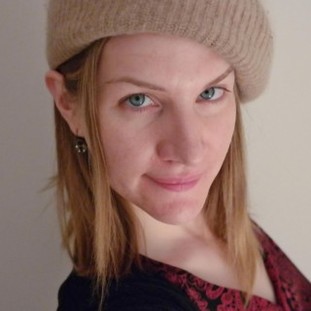 Author Website: SaraheMorin.com Author Facebook: facebook.com/sarahemorinauthor Author YouTube: youtube.com/channel/UC9QS6boA_S6azFZtiEc5jZA 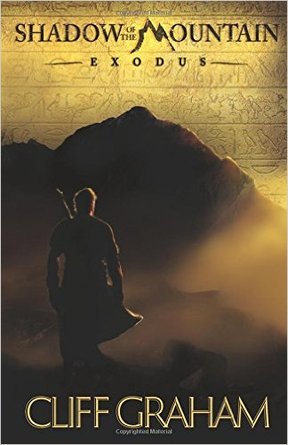 Interview by Brock Eastman Featuring Exodus Cliff Graham is a former US Army officer who now travels the country speaking and writing. He is behind a series of media franchises and author of the Lion of War series while. And now Graham brings us his latest series, Shadow off the Mountain. Brock: Cliff thanks for joining us today. What was the inspiration behind Shadow of the Mountain: Exodus? Cliff: After working many years in ministry and speaking to different conferences, churches, and men’s groups, I noticed that the older men in the crowd tended to feel left out of what was happening, and as a result, had begun checking out to spend time on the golf course. I thought it was time we had a look at a Biblical character who defied the idea of “retirement.” Brock: Who are the main characters you chose to focus on and what makes them unique? Cliff: The primary characters in the series are Joshua and Caleb, the two spies Moses sent out following the exodus from Egypt who then assumed mantles of leadership over all the people. Brock: What is something about these two that others might not know? Cliff: I’m sure others know this, but it is not common knowledge. It is likely that Caleb was not an ethnic Hebrew, but instead a member of a desert tribe known as the Kenizzites. He is one of the first examples of how God’ covenant with Israel was intended for all people. As far as Joshua, he is one of the few characters in the Bible who never really “messes up” on an epic scale like so many others. He wasn’t perfect, but he was a great man doing great things in the power of his God. Brock: That’s some good insight into these guys, and I’m curious now to dig into the passages in the Bible covering them. In three sentences what is the first installment of the series, Exodus, about? Cliff: This is the gritty, intense portrayal of the journey from slavery in Egypt through the wars of conquest in Canaan through the eyes of Joshua and Caleb. It is about the nature of masculine friendship over a lifetime. It is an indictment of the idea that once you reach a certain age, you can just retire and take it easy. Brock: Truly you’ve highlighted in these stories, the inspiration behind the series. Did you outline the entire series before writing? Cliff: I am fortunate to be able to follow the basic outline of the Biblical narrative, so the overall structure is always known. I get to enjoy fleshing out details. Brock: How long does it usually take you to write a single book? Cliff: Depending on the clarity I have for the story and characters, and the time available after seeing through other responsibilities, I can draft a manuscript in 30-60 days. The editorial process can take longer. Brock: How do you believe this story relates to the lives of readers? Cliff: I believe it will speak to men young and old who love a great adventure story, and will help them understand and appreciate the Bible more. Brock: How much leeway do you give yourself with facts in a Biblical fiction novel? Cliff: I try to stay exactly with the Biblical narrative where Scripture is specific, but where it is silent, there is room for ample imagination, so long as the tone and intent of the fiction is to honor the Bible. Brock: Is this your favorite genre to write for? Cliff: Yes, Masculine war-based fiction about battle camaraderie, and the costs of heroism and leadership. Brock: Where do you like to write? Cliff: Oddly enough, I love to write on my staircase near the living room of my house! I need the isolation but I also love to hear the sounds of my family in the house. It staves off the loneliness inherent to writing. Brock: Are you a full-time or part-time author? Cliff: I am full-time as an author, but I also spend a lot of time in other creative endeavors. I own a few small media companies that are busy producing a lot of content. Brock: What are some of the strongest influences on your writing? Cliff: I was always a fan of Louis L’Amour’s fiction and his ability to paint a vivid scene in the reader’s mind. They were simple stories well told. To write for a mass audience, you want to be able to tell a story that is thought-provoking and of high quality, but never lose sight of accessibility. Brock: What’s your view on the current publishing revolution and the digital age of media? Cliff: It has made a big difference in my ability to get content out there sooner than I would have been able to otherwise. Brock: What was your favorite book as a teen or child? Cliff: Without question, Tarzan of the Apes. I read it when I was ten years old and never forgot its imagery and themes. Brock: Coke or Pepsi? Cliff: Coke Zero and it’s not close. Brock: Soft shell or hard shell tacos? Cliff: Soft, because that’s closest to a fajita. Brock: Favorite place to vacation? Cliff: In America, the mountains of Wyoming and Montana. Otherwise, Israel. I have not been able to make it to Europe yet, because I want to be at a place in my life where I can spend a huge amount of time there going to museums and studying architecture, history, and art. Brock: Favorite season? Cliff: Fall. Brock: Do you have a particular drink or food you consume when you write? Like cocoa, raspberry tea, animal crackers? Cliff: Green tea with honey. Brock: Favorite color? Cliff: Navy blue. Brock: Do you have a favorite Bible verse? Cliff: Psalm 140:7 Brock: Do you listen to music while you write? If so, what are some examples? Cliff: The Pandora station “Movie Scores” to stir up storytelling senses, while also playing a thunderstorm on loop through another device. Brock: Cliff I’m going to check out that Pandora Station for sure. Thanks for taking the time to share with us. 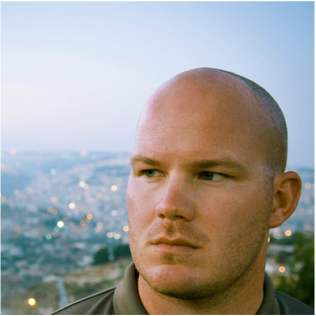 Author Website: CliffGraham.com Author Facebook: facebook.com/cliffgrahamauthor Author Twitter: twitter.com/cliffgraham |
Follow meArchives
May 2024
Categories
All
|
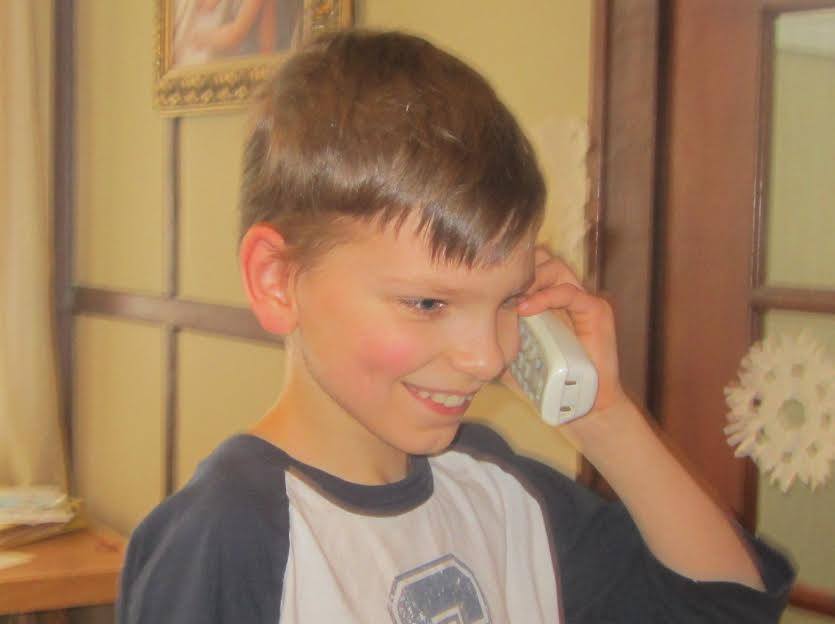
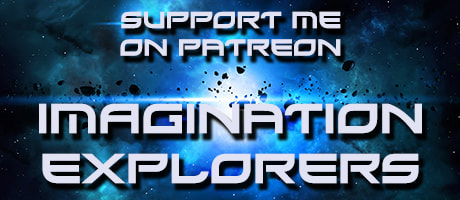
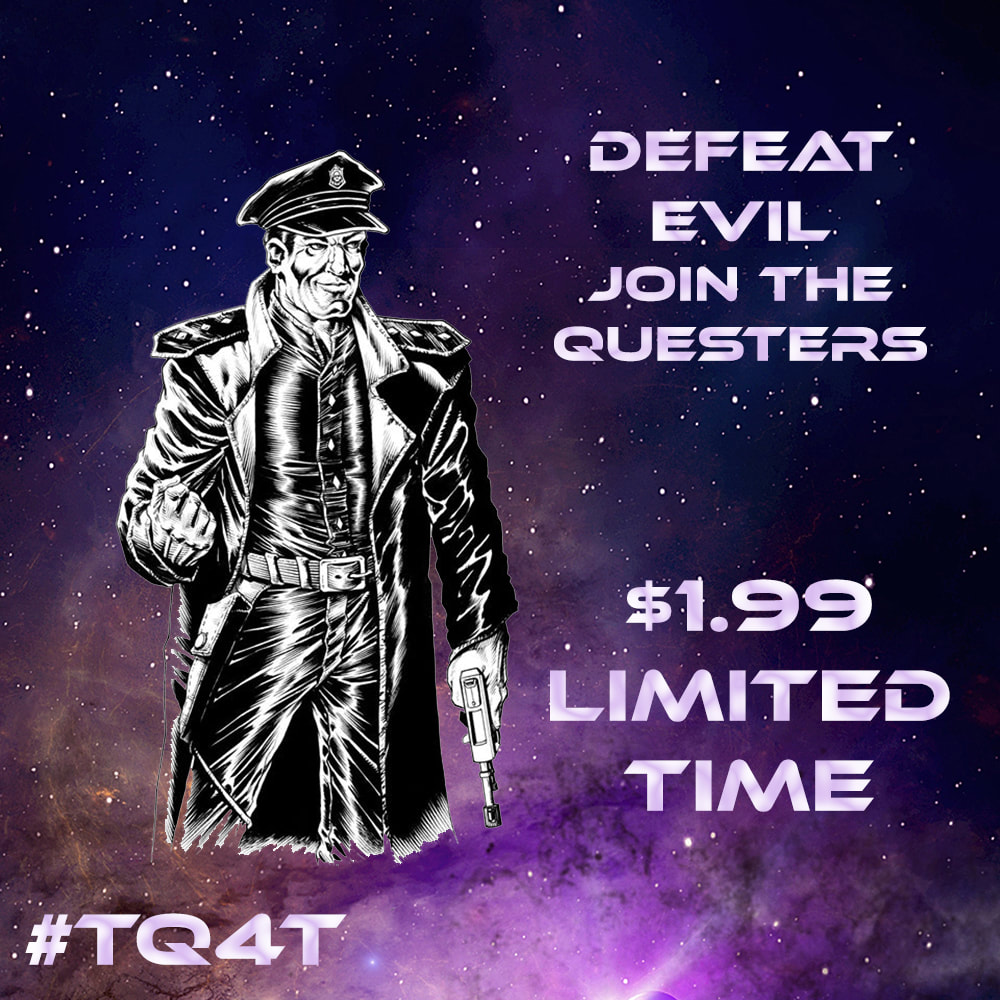
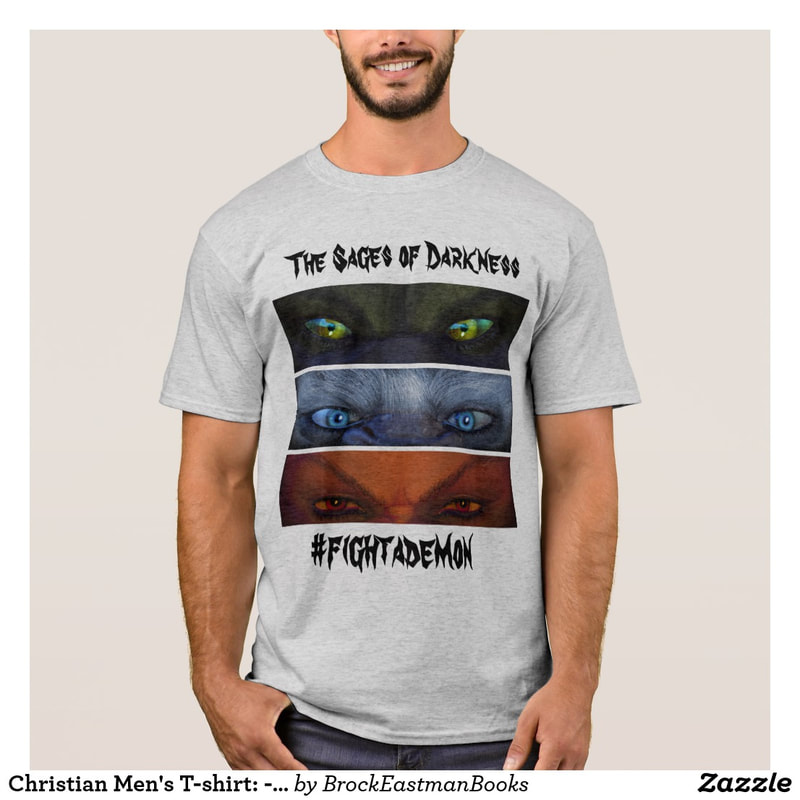

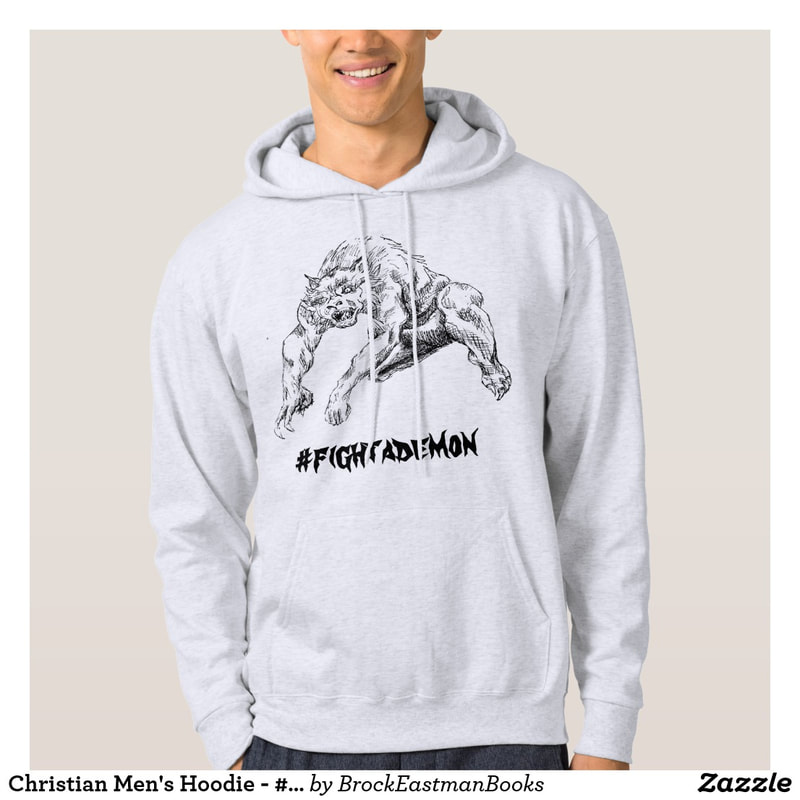

 RSS Feed
RSS Feed